We are an NGO promoting sustainable economic development in the private sector. Our partners are micro, small & medium enterprises (artisans, farmers, merchants, etc.)
|
|
|
|
|
The Furno Jambar project (meaning "hero stove" in the Wolof language), implemented with the most recent support of USAID since February 2000, promotes the manufacture and sale of improved stoves on a mass-market scale. These stoves, with their ceramic lining, save almost half of the charcoal consumed by an average family in its daily cooking, compared with common stoves. They are made by Senegalese artisans trained by EnterpriseWorks, which monitors their quality and promotes good business practices among the artisans. Since production without sales is not an income-generating activity, EnterpriseWorks places a heavy emphasis on marketing. We rely on the informal commercial sector, which is responsible for sales of most consumer items in Africa. EnterpriseWorks builds a network of merchants who buy the stoves from the artisans who make them and and sell them to the public in markets and along major roads, in Dakar as well as in the provinces and even in neighboring countries. Since 1990 the makers of Furno Jambar have made and sold more than 80,000 stoves and accessories, including more than 30,000 since the beginning of the year 2000. Sales during the current project have generated more than 142 million CFA francs or $200,000 in income for stove makers and retailers and their employees and suppliers. "I like the Furno Jambar stoves because I sell more them than any other product in my shop," says Diamé Ndour, a merchant in the the Tilène section of Dakar. The standard-size Furno Jambar stove saves 46% of the charcoal consumed by a common stove, meaning savings of approximately 150 CFA francs per day for an average family or US$80 per year - a month's wages for an average laborer. And they last - they have an average life of 2.5 years. Just the standard-size stoves sold during the year 2000 will save 8,000 tons of charcoal during their lives, which equates to a financial savings of 800 million CFA francs (US$1.14 million) for the homes where they are used frequently. This amount of charcoal corresponds to 65,000 tons of wood, a savings which is a great advantage for the threatened forest resources of Senegal. The demand for Furno Jambar stoves
continues to increase, especially during holiday periods when they are very
popular. The increase in demand is a result of their omnipresence
in markets and other sales venues, as well as satisfaction with their performance
on the part of customers. |
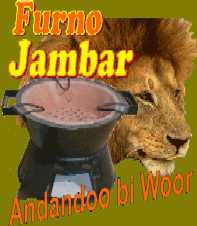

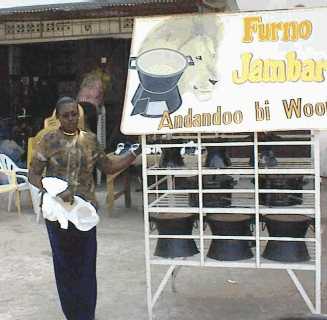

|
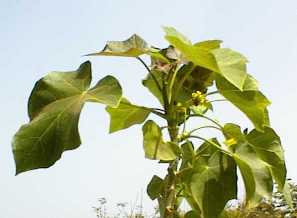
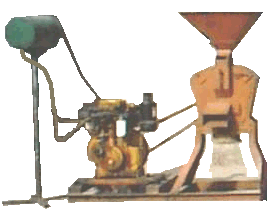
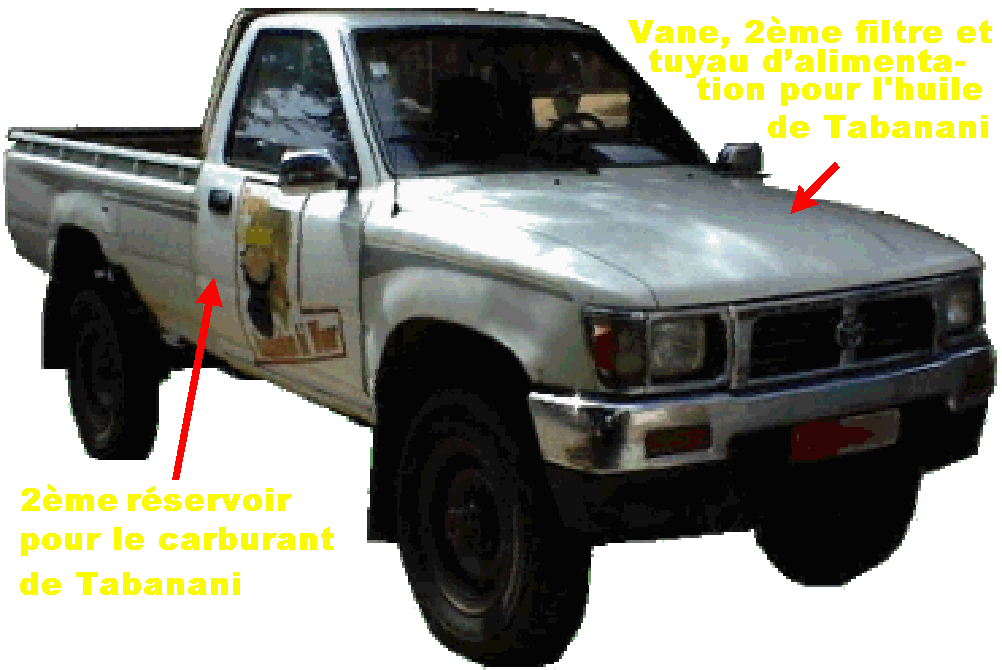

|
Jatropha curcas oil as
fuel and soap
Jatropha curcas (Tabanani in Wolof, Baganaa in Mandinka, Kiidi in Pulaar) is a widespread plant in Senegal as in most tropical countries; it is often used as a live fence, and its leaves are used to treat certain skin ailments. The hedgerows protect agricultural soils against erosion, and it is inedible to animals. The oil from the seeds can be used to make soap, and also as fuel in diesel engines. The oil, extracted using a manual RAM press and then filtered, can be used in diesel engines without any kind of chemical modification. A minor retrofitting of the motor, to allow switching between jatropha and petroleum-based fuel, is the only technical requirement. In remote rural areas, where acquisition of commercial fuels can be difficult and expensive, Jatropha fuel is often valued because it can be produced locally. Jatropha fuel can power grain mills, motor pumps, electric generators, even vehicles. Fuel consumption is almost identical between Jatropha oil and diesel fuel, and they have equivalent power output. Soap manufacutre from Jatropha oil has
proven to be a very profitable income source for village women in Senegal,
which does not have abundant local sources of inexpensive oils from which
to make soap. One liter of oil yields 1.2 kg of soap, which, when sold
in local markets, brings cash income to family women. In the context
of pilot projects financed by
UNDP/Réseau Afrique 2000
and the Rockefeller Foundation
, twelve village groups in the Sine Saloum and around Thiès have
thus far participated. |
|
Sesame Production, Marketing, and Oil Processing Faced with steadily declining returns from traditional peanut (groundnut) farming, combined with a long-term reduction of rainfall, Senegalese farmers need another cash crop that is more reliable and drought-resistant. Sesame needs less rain and less labor than peanuts. It can flourish with 300 mm of rainfall. Its tall growth habit discourages weeds during the second half of the season. Sesame is an oilseed, like peanuts, and yields a high-quality cooking oil. With support from IFAD EnterpriseWorks promoted the production of sesame in the Dakar, Thiès, Kaolack, Fatick, and Tambacounda Regions, distributing seed and providing technical advice to farmers. EnterpriseWorks has pioneered a marketing system based on organized negotiation between united groups of producers and invited buyers' representatives. Rather than selling individually to exporters at whatever price the latter choose to offer, farmers organized by EnterpriseWorks form "sesame exchanges" to negotiate better prices. This approach has subsequently been adopted by at least one other international NGO. If the raw seed price is low, producers always have the option of processing their seed into oil and seedcake. The oil can be sold or used for home consumption, and the seedcake is valuable as animal feed that significantly increases production in milk cows. EnterpriseWorks promotes the manufacture of a piston-operated manual press in Senegal for farmers and rural entrepreneurs, in order to insure the option of local oil extraction. The RAM press, invented by EnterpriseWorks in Tanzania in the 1980s, is the most effective manually-operated oil press in terms of extraction rates and throughput capacity. Unlike a screw press, which has to be repeatedly loaded and unloaded, the RAM press cintinuously takes in seed and expels oil and dry seedcake at the same time. Whereas the wide diameter of the screw press limits the amount of force that can be exerted on the seed to expel the oil, the small diameter of the RAM piston generates enormous pressure for maximum extraction efficiency. It costs less than 150,000 CFA francs (US$215). Since it is manufactured in Senegal, replacement parts and repair services are also available locally - no protracted waits for imported spare parts. The press can process 100 to 150 kg of raw seed per day - sesame, peanuts, sunflower, Jatropha seed, neem seed, castor bean, etc. |
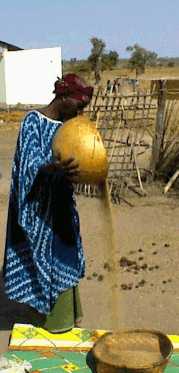
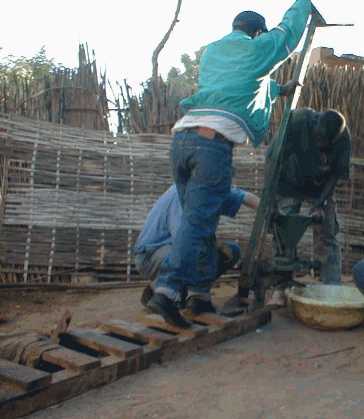
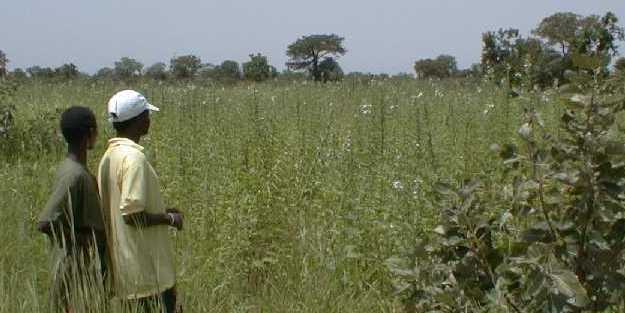
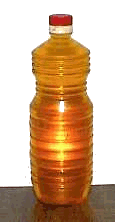
|
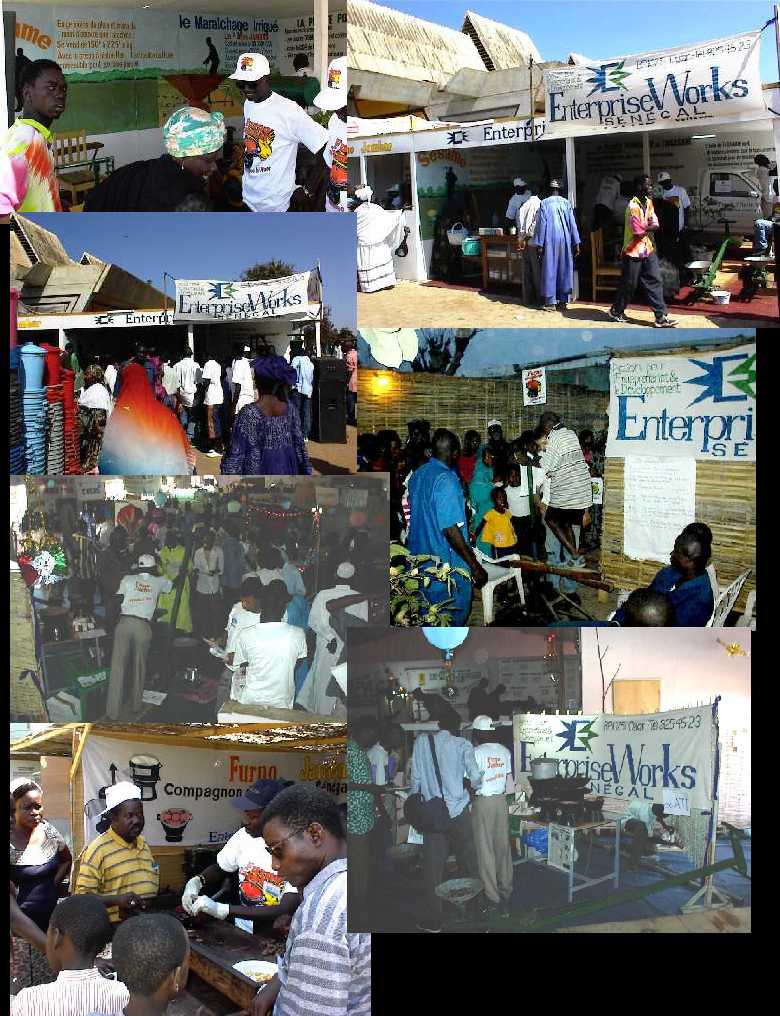
|
|
|
